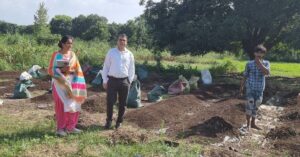Kolkata Society Takes Kids From Textbooks to Fields, Teaches Them to Farm!
By being in urban settings, kids are increasingly isolated from the land and farming. The learning of the food production cycle is mostly confined to the pages of the schoolbooks. The society launched the project ‘Little Farmers’ to bridge this increasing gap by engaging kids in the fun of farming.
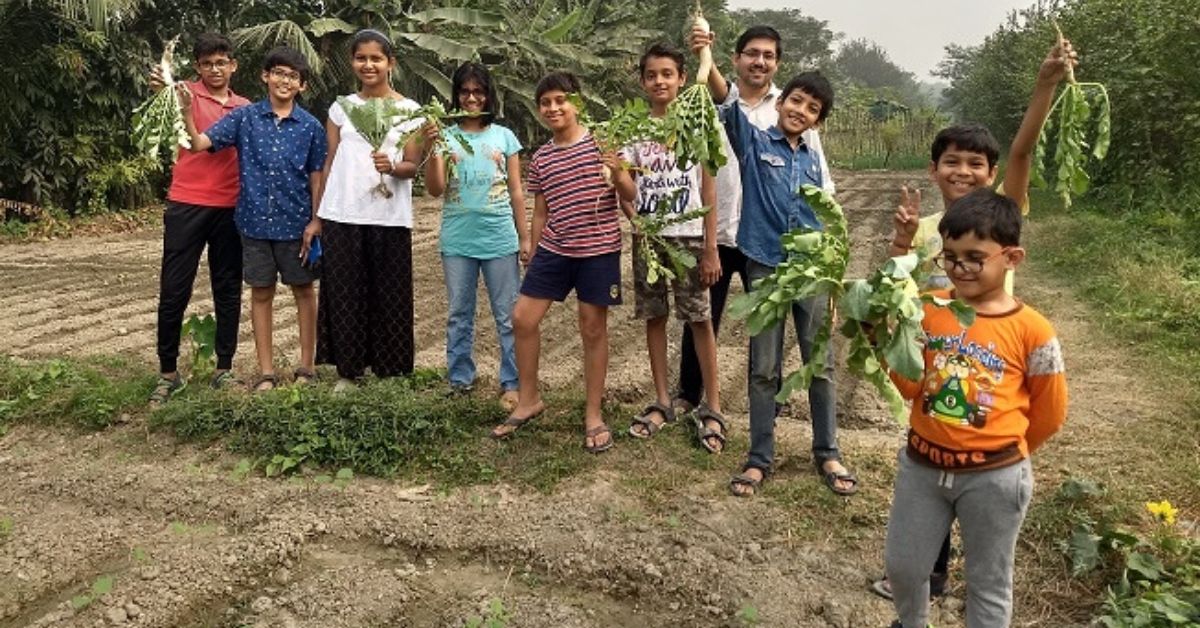
An apartment complex in Kolkata’s Newtown came up with a way of engaging school students in producing organic vegetables and getting them closer to nature.
By being in urban settings, kids are increasingly isolated from the land and farming. The learning of the food production cycle is mostly confined to the pages of the schoolbooks. We launched the project ‘Little Farmers’ to bridge this increasing gap by engaging kids in the fun of farming.
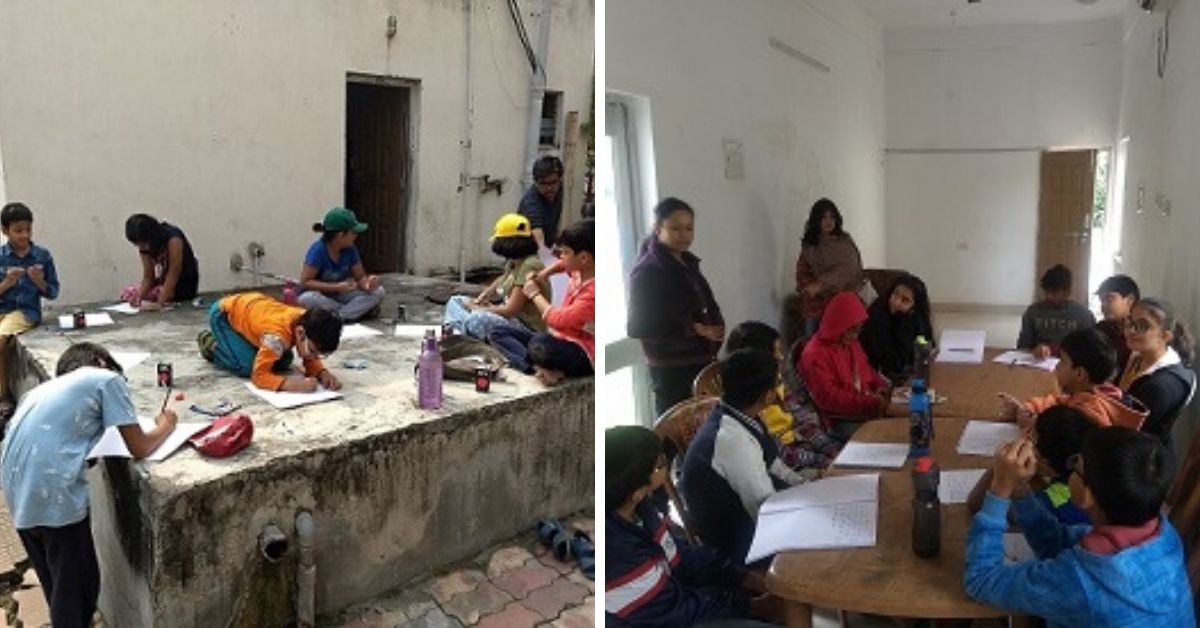
An IT professional, I grew up with significant exposure to farming, which I wanted to share with the children in my apartment complex. While designing the project, I found that ‘gardening’, ‘farming’ are included in the curriculum of many schools.
The initiative received the prompt attention of the parents living in the apartment complex. Soon, 20 students registered for the winter-long farming project.
The initiative was meant to give the kids a hands-on experience as well as to challenge their mental faculties. Topics like soil types, pollination, composting, recycling, irrigation, food production, use of pesticides, which they read in their textbooks, were discussed. Quizzes were held to trigger their thought process, and they were also given the task of writing their farming stories to exercise their creative writing skills.
We organised a 45-minute session where they posed as members of the Parliament and debated practical ways of propagating organic farming across the country. Parents guided them as they worked on their verbal and critical thinking skills.
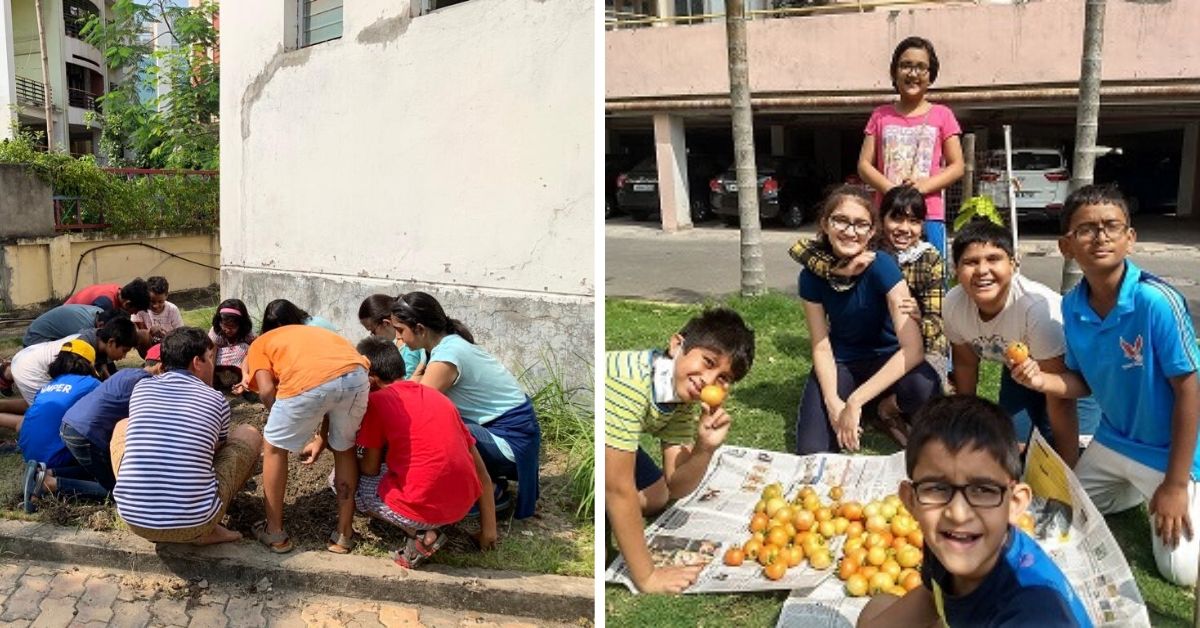
Dyooti Bhattacharya, a class 9 student, said, “While we are habituated to talking in groups, experiencing a structured group discussion has been a great learning.”
Initially, the project started with a kick-off event in the presence of parents and children. A local organic farmer trained the kids on the use of spade, cleaning up of soil, mixing up of compost, cowdung cake, mustard cake with soil etc. Each 2-member group was assigned a small space in the 400-500 sq ft space, where they could choose to farm herbs/vegetables of their choice.
Under his guidance, they worked during the weekends to prepare their plots and plant the seeds. Spinach, coriander, fenugreek, beans and tomatoes were some of the vegetables they grew.
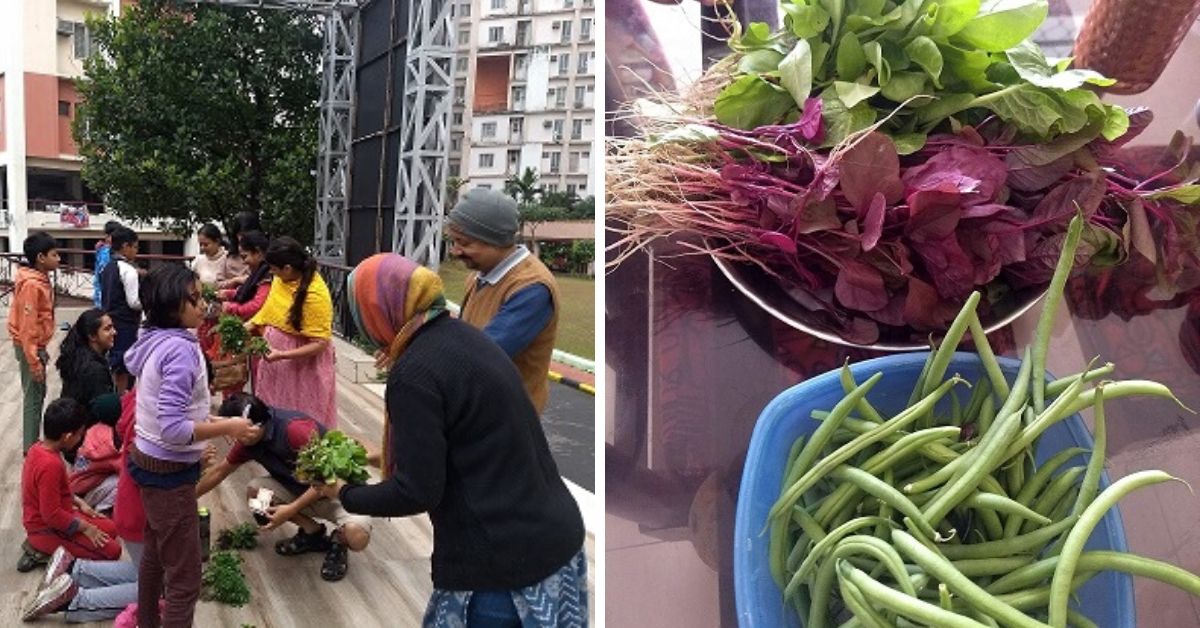
Ritisha Kar, a participant, said, “I had some idea of organic farming. But picking up a spade, mixing compost for the plant bed, planting seeds and watching them grow has been a great learning experience.”
The apartment gardener also acted as the guide when needed. The kids harvested the herbs and vegetables, selling to the residents under the guidance of adults.
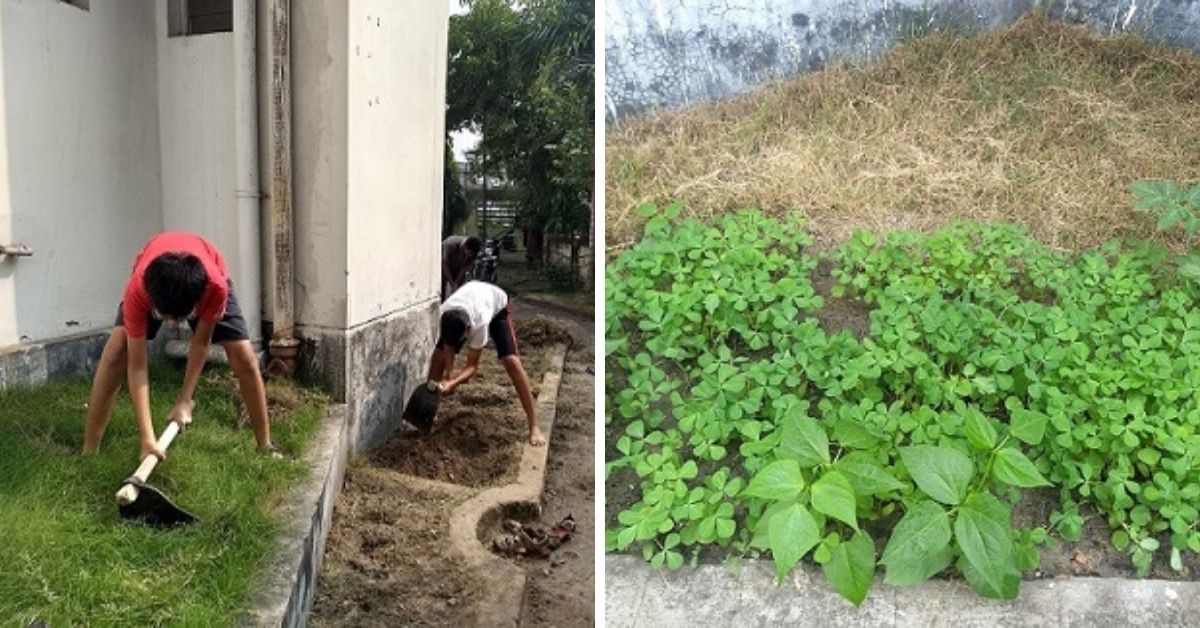
The project also involved visiting local organic farms to understand the best practices and see first-hand how a large-scale farm operates. Saikat Dutt, the father of two participating kids, said, “Our kids are accustomed to seeing the vegetables in local markets and superstores. Visiting a large vegetable farm and talking directly to the farmers was an exciting and learning experience for them.”
Also Read: 500 Punjab Kids Turn ‘Farmprenuers’, Grow Organic Veggies in School Grounds!
With the completion of the winter project, Biswajit is now looking after the field, while planning for a similar summer project when the COVID-19 lockdown lifts.
(Written by Biswajit Majumder and Edited by Shruti Singhal)
Like this story? Or have something to share?
Write to us: [email protected]
Connect with us on Facebook and Twitter.
If you found our stories insightful, informative, or even just enjoyable, we invite you to consider making a voluntary payment to support the work we do at The Better India. Your contribution helps us continue producing quality content that educates, inspires, and drives positive change.
Choose one of the payment options below for your contribution-
By paying for the stories you value, you directly contribute to sustaining our efforts focused on making a difference in the world. Together, let's ensure that impactful stories continue to be told and shared, enriching lives and communities alike.
Thank you for your support. Here are some frequently asked questions you might find helpful to know why you are contributing?


This story made me
-
97
-
121
-
89
-
167




